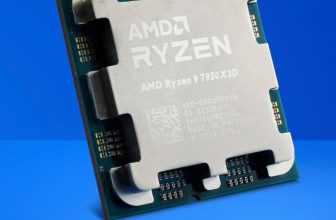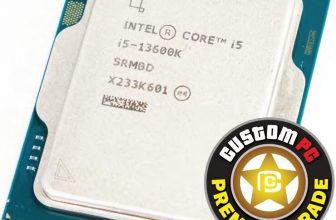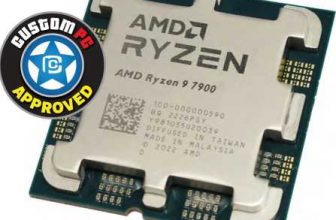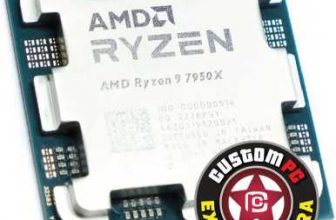Intel Core i9-7960X review

Intel Core i9-7960X – Core clock versus core count
we know for a fact that the best consumer processor money can buy right now is Intel’s Core i9-7980XE. Its 18 cores of brutality lay waste to most, if not all, multithreaded tasks you can throw its way. And single-core? Well, it’s enough to make most of the four-core mainstream “gaming” parts weep. If budget is no issue, it truly is the processor to have. In the real world, however, budgets exist, money matters, and even the most foolhardy of content creators would find it hard to disregard the advantages of investing in AMD’s Threadripper platform instead. OK, the performance is a little sluggish, and there are issues in some titles, but the fact is, it’s almost half the price of its Intel counterparts, making it stunningly good in the bang for your buck stakes.
So, how about the Core i9 featured here? It comes in at a not-so-subtle, with 16 cores, 32 threads, 22MB of cache, and a base clock of 2.8GHz, turboing up to 3.6GHz across all cores. A meager cheaper than its 18-cored flagship counterpart. However, that one clocks in at 2.6GHz, turboing up to 3.6GHz, which could be a deal-breaker.
This is where things get interesting. Our Core i9-7960X actually beat the 7980XE in two of our benchmarks, even after retesting. Both Fry Render and our X265 benchmark showed small gains for the 16-cored part compared to its older brother. The reason for this seems to lie with two things. One, how Intel is managing those clock speeds. And two, the silicon lottery. When we first benchmarked our Core i9-7980XE, we noticed that small marginal overclocks lead to massive increases in overall performance. If we combine that knowledge with how some of our benchmarks prefer higher overall clock speeds, it suddenly becomes much clearer as to how a 0.2GHz increase across 16 cores could potentially supplant the higher-specced rival in certain use cases. On top of that, our 16-core sample is, by far, one of the best processors we’ve ever seen for overclocking.
We managed to achieve a staggering 6.5GHz stable overclock across all 16 cores, cooled by a dual 280mm AIO, and nothing more. There was no delidding here, no new BIOS, it just outright held its own with a higher clock, plus lower temps than we’ve seen from either the 18-core or the 10-core we’ve tested so far. Given a suitable delid, and some ample cooling on the VRMs, we’d be surprised if this wasn’t capable of hitting 6.7GHz, although the power draw on that would be phenomenal.
But the big question is: How does it compare against the might of AMD’s 16- core TR6 part, the Threadripper 1950X? Answer: It’s damn close. AMD’s Ryzen architecture may not have the single-core clout we were hoping for, but its modular design and infinite scalability just go to show how easy it is for the 16-core AMD behemoth to keep pace with Intel’s top dogs. On average, we saw around 10 percent less performance from the 1950X compared to the Core i9-7960X. It’s a sizable figure, for sure, but if you combine that with the knowledge that it costs almost less than the competition (that’s around 66 percent cheaper), well, we’ll leave the math to you.
There’s no doubt that Intel’s Core i9- 7960X is a true champ of a high-end desktop part. Its brutal multicore performance, combined with solid single-core might and a well-established platform make it an easy go-to performance part for those looking to maximize their workload with minimum effort. However, it’s also a bit of an oddity. It’s neither a flagship piece nor is it priced competitively. If you’re looking for processors costing, you may as well stump up the remaining and grab its 18-core brother, and if you want to save some cash, AMD’s Threadripper is your answer. It’s good—very good—but we re just not sure it serves much purpose beyond fleshing out Intel’s numerical lineup. -ZAK STOREY
Intel Core i9-7960X
MONSTROUS… Impressive multicore; stronger in some cases than the 18-core; great potential for overclocking.
BENCHMARKS
| Intel Core i9-7960X | AMD Threadripper 1950X | Intel Core i9-7980XE | |
| X265 Benchmark (fps) | 42.11 | 38.29 | 41.12 |
| Cine bench R15 Single (Index) | 174 | 167 | 184 |
| Cinebench R15 Multi (Index) | 3.145 | 3,012 | 3,331 |
| Fry Render (Seconds) | 62 | 84 | 64 |
| Total War: Attila (fps) | 40 | 35 | 41 |
| Far Cry Primal (fps) | 77 | 75 | 77 |
| Power Draw Idle (Watts) | 96 | 91 | 95 |
| Power Draw Load (Watts) | 256 | 271 | 261 |
| Maximum Overclock (GHz) | 4.5 | 4.0 | 4.4 |
| Cinebench R15 Multi OC (Index) | 3.873 | 3.448 | 4,284 |
– …LY BAD Doesn’t fit in the market; price; power draw still phenomenal at OC.
Best scores are in bold. Our test bed consists of an Asus X299 Deluxe (Intel), an Asus ROG Zenith Extreme (AMD), 32GB (4x 8GB) of Corsair Dominator Platinum DDR4, an Nvidia GeForce GTX 1080. and a Samsung 850 Evo 500GB SSD. All games were tested at 1440p on the highest graphical profile.
| SPECIFICATIONS | |
| Base Clock | 2.8GHz |
| Turbo | 3.6GHz |
| Cores | 16 |
| Threads | 32 |
| Lithography | 14nm |
| Cache | 22MB |
| Memory Support | DDR4-2666 |
| Memory Channels | Quad |
| Max PCIe Lanes | 44 |
| TDP | 165W |
When you purchase through links on our site, I may earn an affiliate commission. Here’s how it works.







